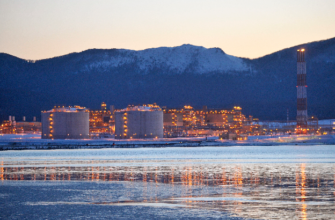Russia, whose budget and social obligations depend on oil prices, is now negotiating with the entire world in order to cooperate during a global crisis caused by a new coronavirus. In particular, our government holds negotiations with the United States on possible coordination of efforts to stabilize the oil market. Would it be possible for the United States to enter OPEC? What kind of cooperation in the oil sector is possible today between Russia and its “overseas partner”?
The cultural and political magazine “E-Vesti” asked General Director of Macro-Advisory Ltd / LLC Mr. Chris Weafer to clarify these topics. Kindly read his review of the situation and find out when and how oil prices can reach the level of the end of 2019.
“The USA could never formally be a member of OPEC because the US regards OPEC as an illegal cartel. Congress has often threatened to take OPEC to international courts because it has accused OPEC of “price fixing” by controlling production on several occasions.
The best that may be hoped for is some form of cooperation, most likely informal, between the US and OPEC on this specific issue. The US government could not direct or order US oil producers to cut production. That would be illegal under US law.
The US could try to get a voluntary deal with the biggest US oil producers or it may step into the market as a buyer of oil for its strategic reserves. But each of those deals would be temporary and only for a few months. The big oil producers, even if they were to agree to a voluntary deal, would not be able to agree a longer term deal. They would risk a backlash from their public shareholders.
I think the only realistic way for the oil price to go higher this year is if OPEC and Russia can agree a production control deal and then other big producers join on a voluntary basis, such as Brazil. Mexico, Canada and Norway. And that will only be possible if the US government can agree either to buy several million barrels of US oil per day for its strategic reserve or they can arrange a voluntary agreement with the big US producers.
The big complaint from the Russian producers and from many OPEC countries also, is that previous production control deals have mostly helped the US industry to grow and to take global market share. This time a meaningful deal will not be possible without the US government or the industry in the US, agreeing to cooperate in some form. OPEC – Russia is finally fed up with supporting the US producers.
It is much more difficult for the US government to persuade the US oil producers to cut. This is because, unlike in Russia or in Norway, Brazil or in any OPEC country, the US government owns no equity in any major oil producer. US law also makes it very difficult for the government to force producers to control production. Realistically, the only credible way the US can join a deal with OPEC+ is if it agrees to buy US oil and place it into the strategic reserve.
But, such a deal may get the oil price up towards $40 per barrel (Brent) at best…the price of oil is not going to return to end 2019 levels until the global economy has fully returned to its previous level of activity and growth. At this stage that looks more likely to happen sometime in 2021 than this year”.





